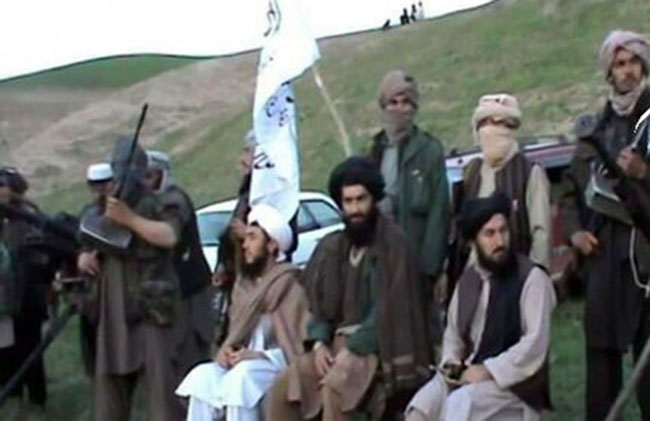Terrorism is a great barrier before the nascent democracy in Afghanistan. With the fall of the Taliban’s regime, democracy was established with the endorsement of Constitution, which includes all the fundamental rights and freedoms of the public. The human rights’ discourse and presidential elections were significant landmarks in our history. Women’s key role in social, cultural and political activities revealed Afghanistan’s high step towards democracy.
The hegemony of democracy put major impact on public life in one way or another. Heaving a sigh of relief, Afghans embraced democracy with open arms and dreamt of a civil society, where no one’s rights and liberty are violated. The downfall of the Taliban’s regime was believed to put an end to war and violence and the blood of Afghan nation would not be spilt by the terrorist groups. Afghan men and women celebrated democracy before the ballot boxes with the hope of saving their lives from the bullet of warring parties, who show no mercy to civilians. Suffering under the cruel regime of the Taliban, Afghan women waxed romantic about freedom and democracy.
By and large, the last constitution of Afghanistan was approved by people’s elected representatives in Loya Jirga (National Grand Assembly) held on January 3, 2004 in Kabul. This Constitution includes the inherent and inalienable rights, liberty and dignity of the individuals irrespective of their race, creed, color and sex and upholds international charters and Universal Declaration of Human Rights (UDHR). This constitution, which is based on national values and international standards, states, “Liberty and human dignity are inviolable. The state shall respect and protect liberty as well as human dignity.”
The US-led NATO “war on terror” believed to root out terrorism from Afghanistan’s soil and strengthen the inchoate democracy. The Taliban’s guerilla fighters, that were a product of social, cultural and political rift, were, however, reorganized and involved in insurgency in Afghanistan – it was a serious challenge before counter-insurgency and put the “war on terror” into the stalemate. Moreover, the US soldiers’ withdrawal compounded the problem and weakened the iron will of US. Therefore, efforts were made to bring the Taliban to the negotiating table.
The negotiation of peace was a highly complicated and challenging issue for Afghanistan, which is yet to bear fruit, despite the tireless struggles and great sacrifices made by the High Peace Council (HPC). The Taliban never revealed a genuine tendency towards a bona fide peace in the country and played a foul game in this regard. The death of Mullah Omar and his successor Mullah Akthar Mansour was a blow to the peace talk and brought it to a standstill.
Currently, Mansour’s successor Mullah Haibatullah Akhundzada play more destructive role through orchestrating attacks against the National Unity Government (NUG). In other words, democracy, in Afghanistan, is threatened by the rise of religious extremism and violence by anti-government groups that are transnational in character. The state is unable or unwilling to protect people against such extremist groups. These trends negate the spirit of democracy. Several African states collapsed or became dysfunctional due to internal conflict and violence.
Democracy is viewed as a process rather than an end product. It is wrong to assume that anything less than the ideal democracy means that there is no democracy at all. It is a process and you strengthen it and improve its quality as you implement it and make mid-course correction in it. Therefore, what matters most is its direction. Democracy needs to move from “less” to “more” democracy. It is a continuous process and requires regular review of its performance.
Democracy is a challenging political system that calls for implementation of its principles in letter and spirit. It is more responsive to the aspirations of the common people. There are ample examples in history to show that the popularity of democracy does not mean that the elected ruler will be equally popular or those criticizing such a ruler are against democracy.
Sadly, democracy has not yet given the desired result in Afghanistan since there are cultural, social and political barriers before it. Afghanistan, along with Pakistan and Syria is, reportedly, among the top five countries most hit by terrorism. According to the report, deaths from terrorism in OECD (Organization for Economic Cooperation and Development) countries increased by 650 per cent last year despite a marked fall globally as Islamic State (IS) and Boko Haram militants suffered military defeats at home but committed more attacks abroad. The report said 21 of the 34 OECD member countries had witnessed at least one attack with most deaths occurring in Turkey and France where coordinated attacks by IS gunmen and suicide bombers at the Bataclan music venue, a soccer stadium and several cafes in Paris last November killed 130 people. Iraq, Afghanistan, Nigeria, Pakistan and Syria, which accounted for 72 per cent of all deaths, were the top five ranked countries in the Global Terrorism Index (GTI).
Perhaps, to strengthen democracy and save from violence and bloodshed, President Muhammad Ashraf Ghani on Monday asked the United Nations Security Council to include names of all terrorists, including the current Taliban supreme leader, Mullah Haibatullah, in its sanctions list. However, the question is that will it ensure democracy in Afghanistan?
Home » Opinion » From Bad to Worse!
From Bad to Worse!
| Hujjatullah Zia

